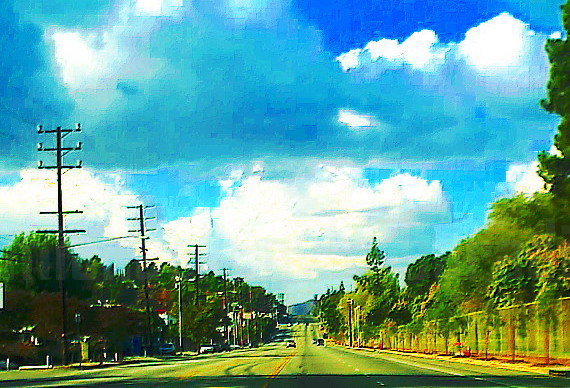Before opening the gate, there's a pause. You hear the silence of mountains folded in the sound of car-engine. The moon traps itself in your windshield, deforms its geometry in a tangle of shadows. You're trying to remember the tail-end of whispers, clinging on the curve of lips. Soon, you deface the idea of loss, its hyperbolic sentimental affectations. And you think you understand this, the pleasure to ruin. It's a kind of freedom, flight forceful as wings. The absence of adjustments is air, reduction of the need for something logical. Later, the smell of coffee blankets your patio, tempts the night to rest in the hush of leaves falling in their movement.
On The Road
At some point, you vanish in the corrugated destinations of tires. You forget your fragility, and just move on. Freeway signs become indications of hope. Clouds of any form shape the weather in your prayers. If you allow it, memories huddle in those broken lines in the middle of the road, as though they want to straighten your vision of what might. You feel you don't care. But you do. You see mountains rising in their contours. You see these in your peripheral vision, that place where things don't want to vanish, but remain as blurs, the kind that softens the saturations in your reality.
Dinaw Mengestu
I'm finishing How To Read The Air by Dinaw Mengestu. Fantastic. I like the momentum of the story that becomes meta-fictional, now and then, especially when the narrator, Jonas, creates fictional encounters between him and his father. These encounters draw Jonas into the intimate aspects of his family's past, a story of movement, from one mental geography to another, into conundrums of exile.
Subscribe to:
Comments (Atom)

